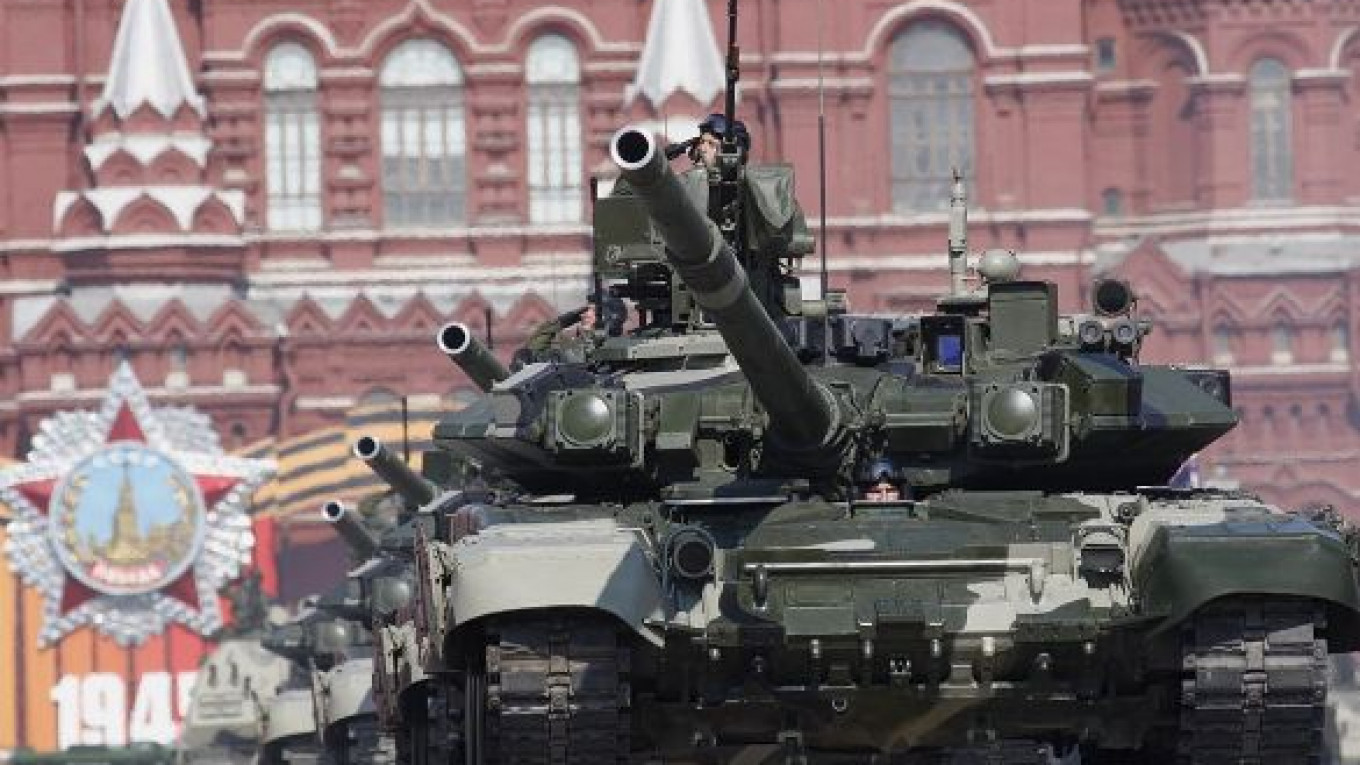A senior official on the government’s defense industry commission, which is chaired by Deputy Prime Minister Dmitry Rogozin, called on industry executives to shop for promising technologies in the West, taking advantage of those countries’ economic difficulties.
“There is a need to look for cutting-edge technologies while there are some economic problems there,” Ivan Kharchenko, a defense industry official, told a group of hundreds of lobbyists and government officials Thursday.
He also said the United States, concerned with the military rise of China, is not putting “hard pressure” on its Western military partners not to cooperate with Russia.
But Kharchenko said the Russian defense industry would not purchase pre-assembled Western military products, in contrast to the policy pursued by former Defense Minister Anatoly Serdyukov.
Kharchenko said, however, that the country’s shipyards would complete finishing works on two French-made Mistral ships purchased during Serdyukov’s tenure because “extensive resources” have already been spent on the project. He added that two other planned Mistral ships would not be built.
Defense Ministry officials said Wednesday that the ministry would cease purchasing Italian-made defense vehicles under a contract signed by Serdyukov, Kommersant reported.
But armed forces chief Vladimir Chirkin said Wednesday that 1,775 Iveco vehicles would be purchased, out of 3,000 planned, to honor the signed contract.
Kharchenko, who serves as an aide to Rogozin, criticized Serdyukov, calling his activity “damaging for the state.”
Defense industry officials are planning to modernize the country’s armed forces by creating a Russian analogue of the United States’ DARPA, the agency that does advanced technological research for the Defense Department.
Kharchenko said Thursday that Andrei Grigoryev, a member of the commission, would be nominated to head the Russian DARPA.
DARPA, which stands for Defense Advanced Research Projects Agency, was created in 1958 by U.S. President Dwight Eisenhower in response to the launch of Sputnik and the fear of growing Soviet military might.
Russia is expected to spend around 20 trillion rubles ($662 billion) by 2020 on defense. Putin has ordered that 70 percent of the military’s weaponry be upgraded.
But experts in the defense industry, which is still heavily reliant on Soviet-era technology, have acknowledged that bringing fresh blood into the sector will be a hard task. “All defense-sector industries do not have modern technological standards. There are no cutting-edge projects,” said Givi Dzhandzhgava, deputy head of Ramenskoye PKB, a producer of navigation equipment for the country’s military and civilian jets.
He said a lack of qualified staff, an absence of professional managers and outdated equipment are among the biggest problems. “You can’t make cutting-edge technologies using old-fashioned tools,” Dzhandzhgava said.
Industry experts said the country’s defense sector is plagued by corruption.
On Thursday, police uncovered the embezzlement of at least 1.5 million rubles ($50,000) meant for the Strategic Rocket Forces to decommission silos, Rossiiskaya Gazeta reported.
Contact the author at a.bratersky@imedia.ru
Related articles:
A Message from The Moscow Times:
Dear readers,
We are facing unprecedented challenges. Russia's Prosecutor General's Office has designated The Moscow Times as an "undesirable" organization, criminalizing our work and putting our staff at risk of prosecution. This follows our earlier unjust labeling as a "foreign agent."
These actions are direct attempts to silence independent journalism in Russia. The authorities claim our work "discredits the decisions of the Russian leadership." We see things differently: we strive to provide accurate, unbiased reporting on Russia.
We, the journalists of The Moscow Times, refuse to be silenced. But to continue our work, we need your help.
Your support, no matter how small, makes a world of difference. If you can, please support us monthly starting from just $2. It's quick to set up, and every contribution makes a significant impact.
By supporting The Moscow Times, you're defending open, independent journalism in the face of repression. Thank you for standing with us.
Remind me later.






